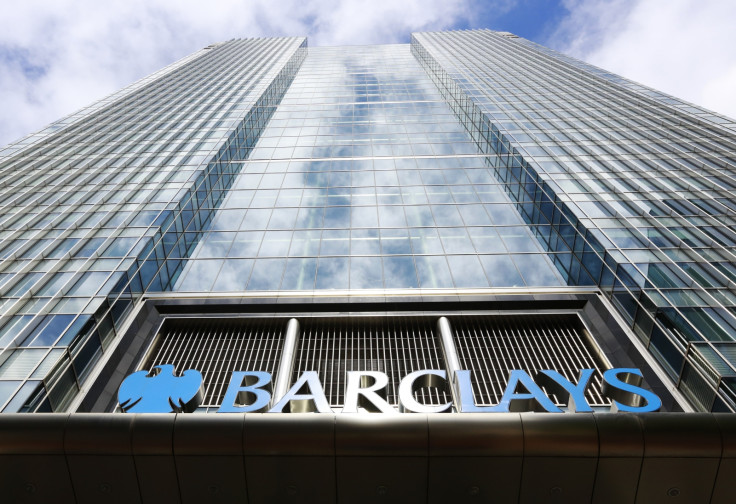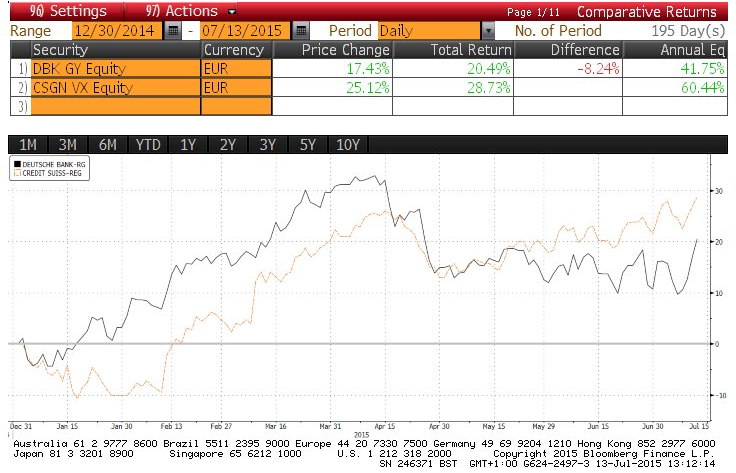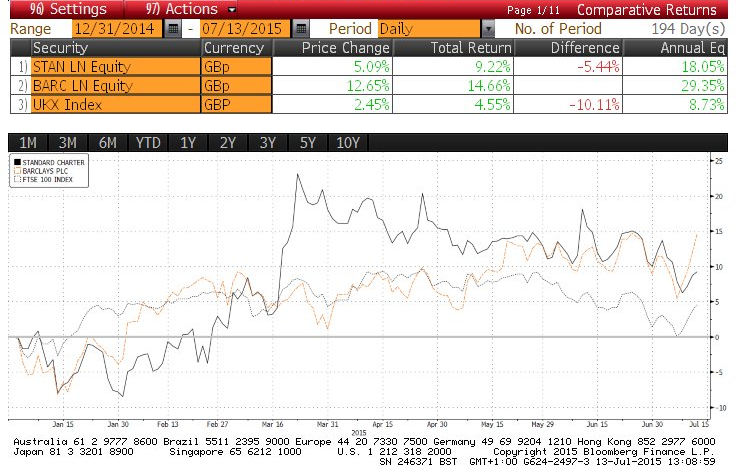Edmund Shing: Barclays and Standard Chartered investment lessons from Deutsche Bank and Credit Suisse

Banks are not exactly popular companies these days. At a cocktail party, I think that I would rather claim to be a maths teacher than a banker, so low is the stock of bankers. I have a strong suspicion that bankers rank above lawyers, estate agents, and traffic wardens in the list of most-hated professions!
It seems that shareholders in banks feel the same way about top bank management. In the last few months, there has been a veritable avalanche of firings at the heads of UK and European banks, including Barclays, Standard Chartered, Germany's Deutsche Bank, and Switzerland's Credit Suisse.
I would hardly shed a tear for these departing chief executives; after all, they have generally presided over poor performance at each of these banks during their tenure, and moreover received very generous severance packages and huge pension contributions. While this may well be excessive, that is the subject for another article...
Does management change mean it's time to buy?
When investing in companies, a change in management can often prove to be a good buying indicator. A new chief executive can represent a new broom, sweeping out the old ineffective management strategy and bringing in fresh, new ideas to improve the company's growth and profitability.
If we look to Europe, we can see two examples of banks that have announced changes in chief executive:
- Credit Suisse (one of the top two Swiss banks): The outgoing chief executive John Mack is being replaced by Tidjane Thiam, the current chief executive of UK insurance company Prudential. Thiam is seen to have run Prudential very effectively, and investors are hoping that he can be as effective in restructuring Credit Suisse.
- Deutsche Bank (the top German bank): The outgoing co-chief executives are being replaced by John Cryan, a veteran of top Swiss bank UBS.
From the chart below, it is clear that investors are anticipating great things from these two new bank bosses. Deutsche Bank has already gained over 20% since the beginning of this year, while Credit Suisse has done even better with a 28% gain over a similar period.

Out with the old and in with the new at Standard Chartered
Amongst UK banks, both Barclays and Standard Chartered have changed or are in the process of changing their top management.
At Standard Chartered, William Winters has been installed as the successor to outgoing Chief Executive Officer Peter Sands. Winters, a former JPMorgan Chase investment banker, is seeking to reverse two years of declining profits and rebuild investor confidence in the Asian-centred bank.
Since his installation at the head of StanChart, Winters has not wasted time instigating a complete overhaul of senior management at the bank. The company's share price has started to reflect these changes, gaining over 9% during 2015 to date.
Now could be a particularly interesting time to invest in Standard Chartered as its shares have clearly been affected of late by negative sentiment as Chinese stock markets have slumped.
A note on StanChart's lowly valuation level: it trades at only 0.86 times its book value (an accounting measure of the bank's value), which is cheaper than for Lloyds Bank, HSBC and TSB.
Should Winters improve StanChart's profits, then this is likely to rise, sending the share price from the current 1018p back up to the 1160p level that it hit back in March 2015.
StanChart also offers a relatively generous 4.7% dividend yield income, and if Winters is successful in reviving the company's fortunes, this dividend income should grow steadily in the years to come.

Barclays: A new broom about to arrive
The surprise removal of Barclays chief executive Anthony Jenkins by chairman John McFarlane has prompted speculation about more radical changes at its head office in Canary Wharf, London.
There is an intense focus on the future of Barclays Capital, the investment banking division which has thus far disappointed investors with its relatively poor improvement in profitability to date.
While the Barclays board is said not to be in a hurry to appoint a new chief executive, preferring to take their time to find the right candidate, it is clear that the new chief executive will be expected to accelerate the restructuring of the various Barclays businesses to get profits back up quickly.
The stock market has welcomed this move so far, with Barclays gaining nearly 15% over the year to date, jumping markedly after the announcement of Jenkins' departure.
Which to buy right now? I would go for Standard Chartered
While the top management changes at both Standard Chartered and Barclays bode well for the future, right now I would be tempted to favour Standard Chartered, given its lowly valuation and the potential for the shares to rebound once the Chinese stock market has stabilised.
In the meantime, you are paid to wait with a near-5% income from dividends.
Edmund Shing is the author of The Idle Investor (Harriman House), an expert columnist and a global equity fund manager at BCS AM. He holds a PhD in Artificial Intelligence.
© Copyright IBTimes 2025. All rights reserved.




















